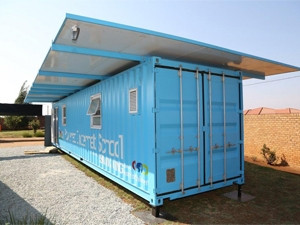
In an effort to roll out 12 Solar Powered Internet Schools (SPIS) by the fourth quarter, Samsung has handed over a unit to Refalletse Primary School in Orange Farm.
Panyaza Lesufi, Gauteng MEC for Education, notes ICT's impact on education is one with the ability to advance the quality of education in the country.
"The integration of ICT in our education system will undoubtedly raise the quality of education in our country. Teachers will be empowered to engage in more research while preparing their lessons and the students will have a chance to gain more knowledge from online content," he says.
Kea' Modimoeng, public affairs and corporate citizenship manager at Samsung Africa, explains partnering with governments on the SPIS solution is essential as it allows for the educational programmes that are provided in the SPIS be aligned with the educational curriculum. "This goes a long way in ensuring that schools and students fully benefit for the solution," he says.
The solar-powered, mobile and independent classroom is geared at increasing accessibility to education and connectivity across Africa. It is designed particularly for use in remote rural areas with limited or no access to electricity.
The unit is equipped with a router, a file server, an uninterrupted power supply (UPS) and video camera, all of which are designed to communicate via 3G or satellite connection. The server contains the complete South African school curriculum spanning from grade 0 to grade 12, allowing the school to teach any subject or grade.
According to Modimoeng, all previously launched SPIS are operating well and a close relationship with the schools and communities in which the SPIS' are situated is maintained. "We also make regular visits to ensure that the SPIS is operating effectively and offer our support where it is needed in other areas of the school."
Modimoeng notes the units are already benefiting schools in SA, Rwanda, Kenya and the DRC, with principals noticing an increase in pass rates and a renewed hunger among students to learn. "Small business owners take advantage of the installed connectivity to conduct business, communicate with partners and customers and plan for the future," he continues.
The initiative is being spearheaded by Samsung alongside Habitat for Humanity and the Gauteng Department of Education.